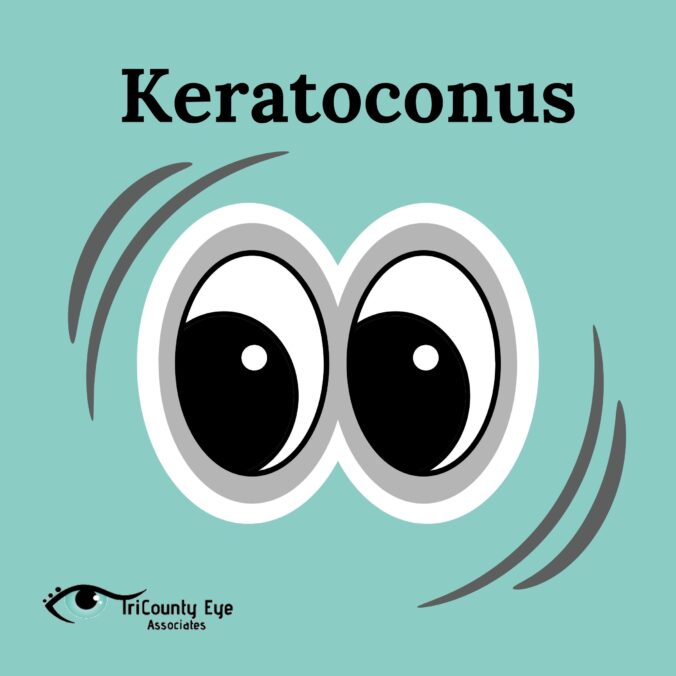Have you ever heard of keratoconus? We love to bring you information about common eye issues that everyone may face in their lifetime. Every now and then, we like to bring awareness to the lesser know eye issues that not as many people know about.
One that we wanted to bring attention to today is Keratoconus. This eye issue happens in approximately 2,000 people in the United States. It can begin usually in puberty and then progressing into the mid 30s. The condition may take up to 10 years to progress, or even longer.
What is Keratoconus?
This eye condition is when your cornea gets thinner and gradually bulges outward into a cone shape. The Cornea is the clear, dome front of your eye. If your cornea becomes coned shaped, it can cause a lot of issues for your vision.
This condition can affect one eye more than the other eye, so you may need a different prescription in one lens.
Symptoms of Keratoconus
- Sudden worsening or clouding of vision
- Blurred or distorted vision
- Frequent changes in eyeglass prescriptions
- Increased sensitivity to bright light and glare
What Causes Keratoconus?
There are not any known causes for keratoconus. It is thought that there are genetic and environment factors that can contribute to it. The statistics go up if your parent has the condition.
Things that can increase your chances of developing keratoconus:
- Rubbing your eyes vigorously.
- Having other conditions like retinitis pigments, Down syndrome, Ehlers-Danlos syndrome, Marfan syndrome, hay fever and asthma.
- Having a family history of keratoconus.
Treatment
Depending on the severity of the condition the treatment can range from prescription eye glasses to surgery.
In the early stages, the vision problems can be corrected with glasses or soft contact lenses. If the condition develops, you may need to be fitted with rigid, gas permeable contact lenses or other types of lenses like scleral lenses. If the condition continues to progress and get worse, you may need a cornea transplant.
There is a procedure called corneal collagen cross-linking that may stop or slow the progression of keratoconus, if caught early enough. This could also prevent the need for a future cornea transplant.


Leave a Reply